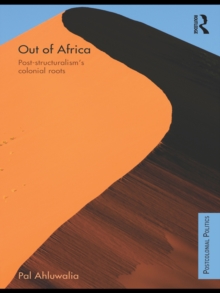
Reconciliation and Pedagogy Hardback
Edited by Pal (University of South Australia) Ahluwalia, Stephen Atkinson, Peter Bishop, Pam Christie, Robert Hattam, Julie Matthews
Part of the Postcolonial Politics series
Hardback
Description
Reconciliation is one of the most significant contemporary challenges in the world today.
In this innovative new volume, educational academics and practitioners across a range of cultural and political contexts examine the links between reconciliation and critical pedagogy, putting forward the notion that reconciliation projects should be regarded as public pedagogical interventions, with much to offer to wider theories of learning.
While ideas about reconciliation are proliferating, few scholarly accounts have focused on its pedagogies.
This book seeks to develop a generative theory that properly maps reconciliation processes and works out the pedagogical dimensions of new modes of narrating and listening, and effecting social change.
The contributors build conceptual bridges between the scholarship of reconciliation studies and existing education and pedagogical literature, bringing together the concepts of reconciliation and pedagogy into a dialogical encounter and evaluating how each might be of mutual benefit to the other, theoretically and practically. This study covers a broad range of territory including ethnographic accounts of reconciliation efforts, practical implications of reconciliation matters for curricula and pedagogy in schools and universities and theoretical and philosophical considerations of reconciliation/pedagogy.
It will be of great interest to students and scholars of peace and reconciliation studies, educational studies and international relations.
Information
-
Out of stock
- Format:Hardback
- Pages:224 pages, 3 Tables, black and white; 1 Line drawings, black and white; 5 Halftones, black and white
- Publisher:Taylor & Francis Ltd
- Publication Date:14/05/2012
- Category:
- ISBN:9780415687218
Information
-
Out of stock
- Format:Hardback
- Pages:224 pages, 3 Tables, black and white; 1 Line drawings, black and white; 5 Halftones, black and white
- Publisher:Taylor & Francis Ltd
- Publication Date:14/05/2012
- Category:
- ISBN:9780415687218










